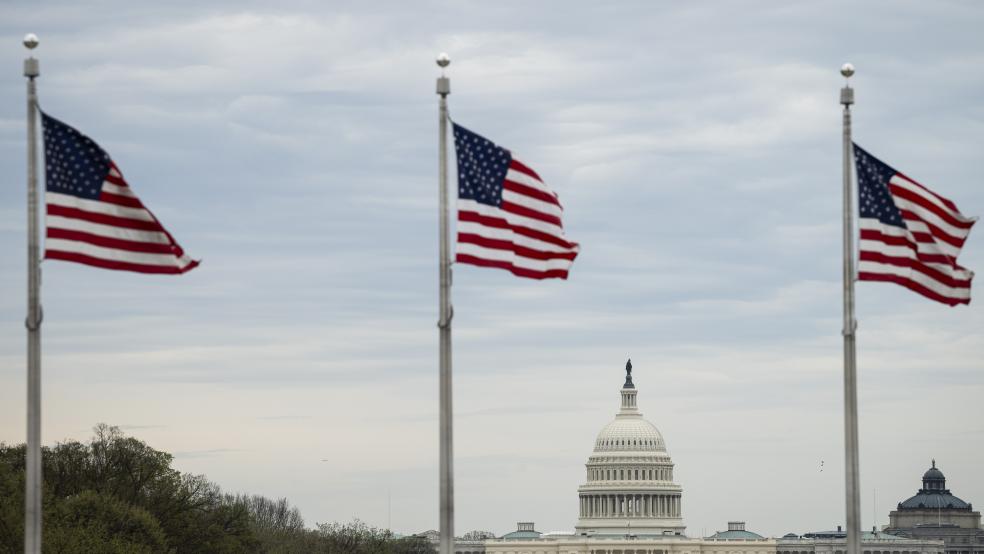They have a deal. Now they just need the votes.
President Joe Biden and congressional leaders announced Tuesday morning that they had reached an agreement on the contentious appropriations bill for the Department of Homeland Security, the last of the six remaining full-year funding bills to be settled.
The deal means that the appropriations process for the fiscal year that started in October, nearly six months ago, is finally nearing completion, though the legislative text must still be finalized, and the entire six-bill package must be passed by the House and Senate. It remains unclear whether those steps can be completed in time to avert a brief government shutdown that would otherwise start after midnight on Friday.
“House and Senate committees have begun drafting bill text to be prepared for release and consideration by the full House and Senate as soon as possible,” House Speaker Mike Johnson said in a statement.
In addition to the Homeland Security funding, the package includes the Defense, Labor-HHS-Education, Financial Services, Legislative Branch and State-Foreign Operations appropriations bills providing funding through the end of September. The package is expected to total about 70% of the $1.66 trillion in discretionary spending agreed to for the current fiscal year. The other six annual appropriations measures, totaling some $460 billion, were enacted earlier this month.
Biden said he would sign the latest bill immediately once it reaches his desk, but the timing could be problematic. House Republican leadership has committed to allowing 72 hours for members to read the legislation ahead of any vote. Johnson might choose to waive that rule, at the risk of further alienating conservatives already angry over the spending package. Even if he sticks to the rule, there is still a chance that the House and Senate can both vote on the package on Friday, but it would require a high degree of coordination and cooperation.
But if the text of the bill isn’t released until Wednesday, that could also push a House vote to Saturday, after the Friday night deadline. The Senate process could then mean that final passage is delayed until Monday. In other words, the process could result in a brief appropriations lapse, albeit one that’s unlikely to cause any serious disruption.
Another short-term measure to keep the government funded past the deadline may also still be possible.
Roll Call’s Aidan Quigley suggested Monday that the congressional calendar, or even college basketball fever, might help speed the process, noting optimistically that “lawmakers’ desire to start their two-week Easter recess on time — and catch the start of March Madness this weekend — could inspire quicker action.”
The bottom line: The end of the prolonged budget and appropriations process for fiscal year 2024 is in sight, even as the 2025 process has just gotten underway this month with the release of Biden’s budget request.





